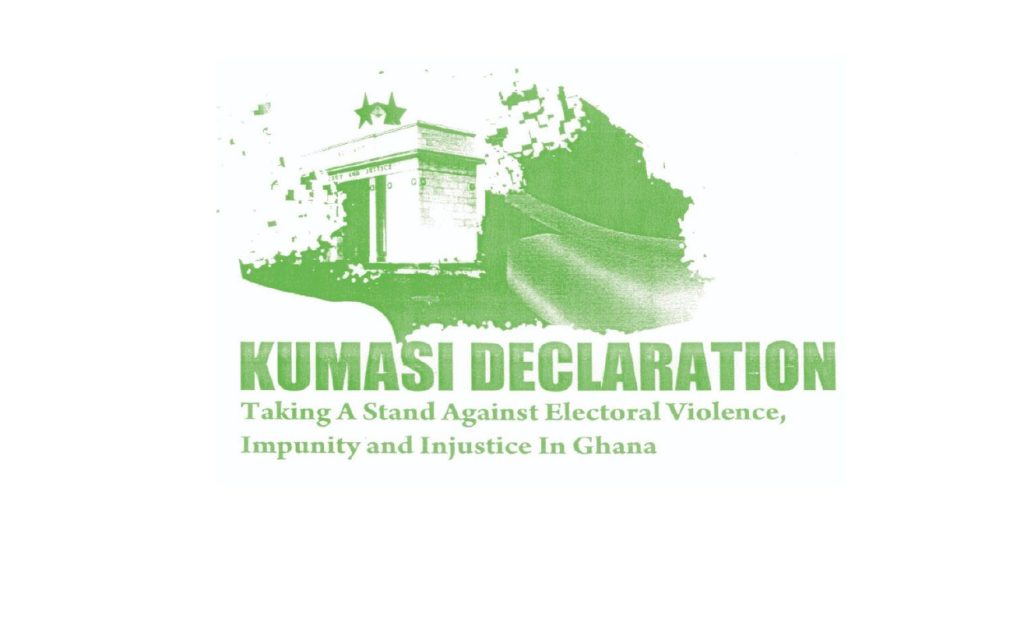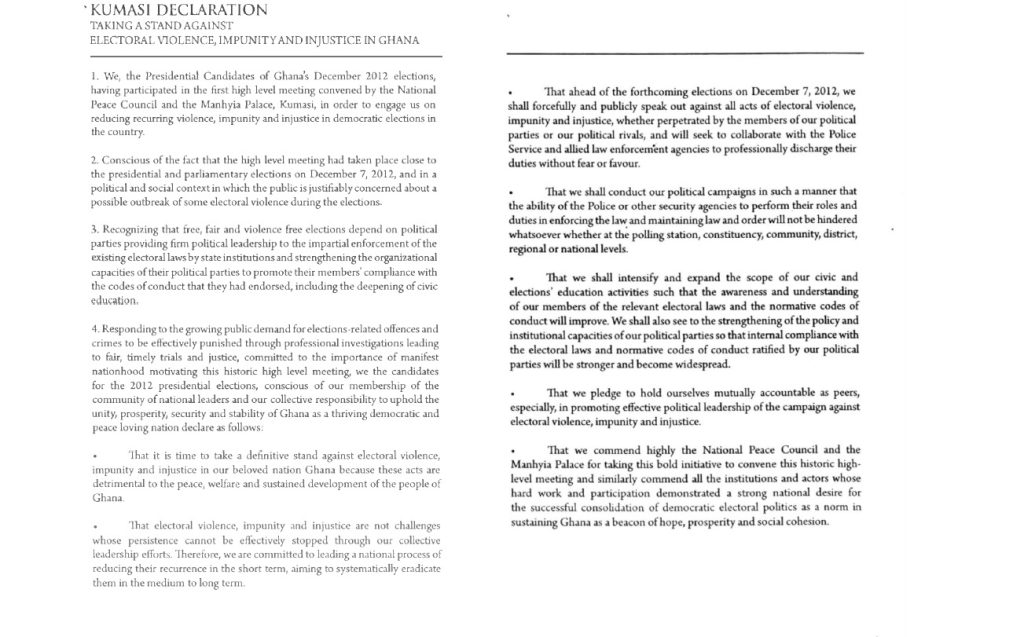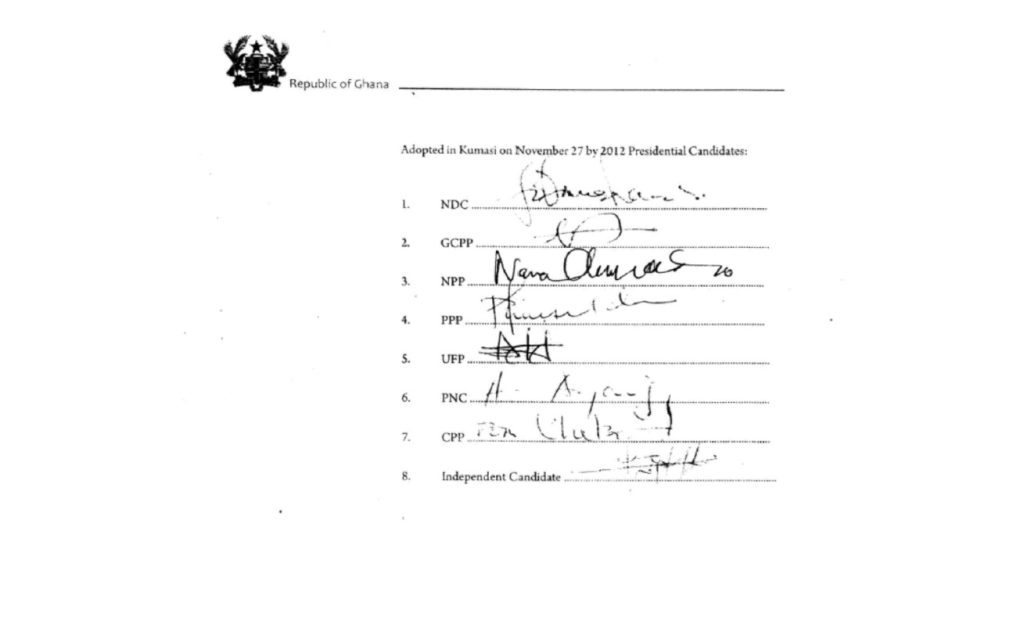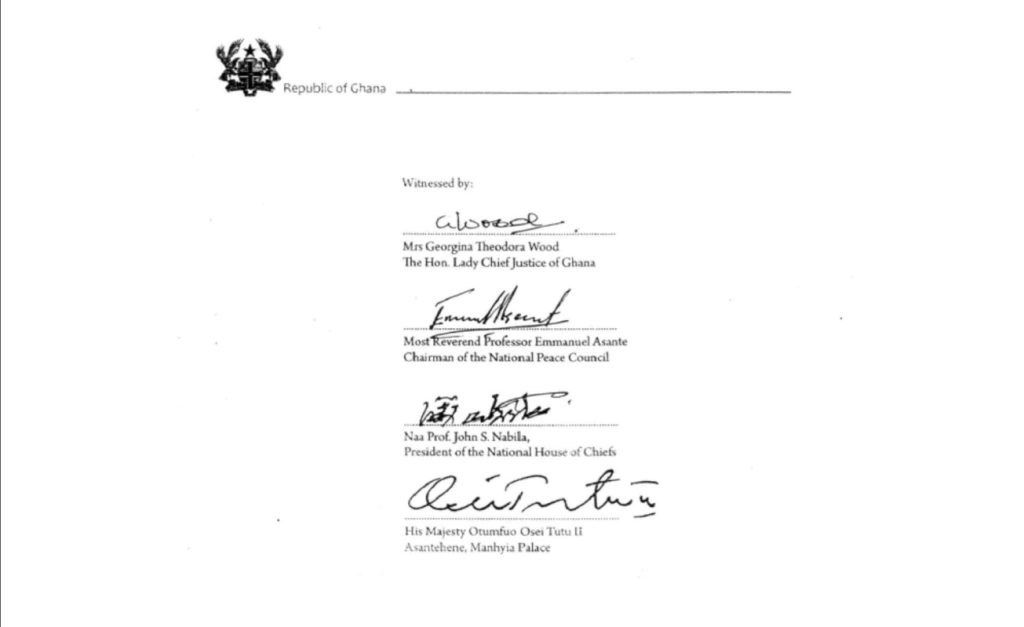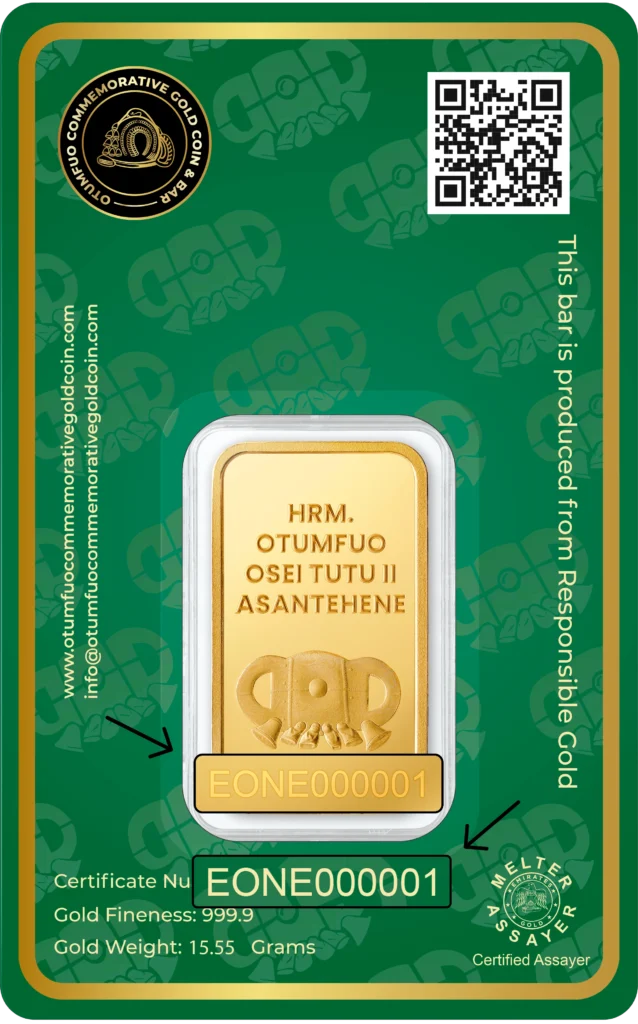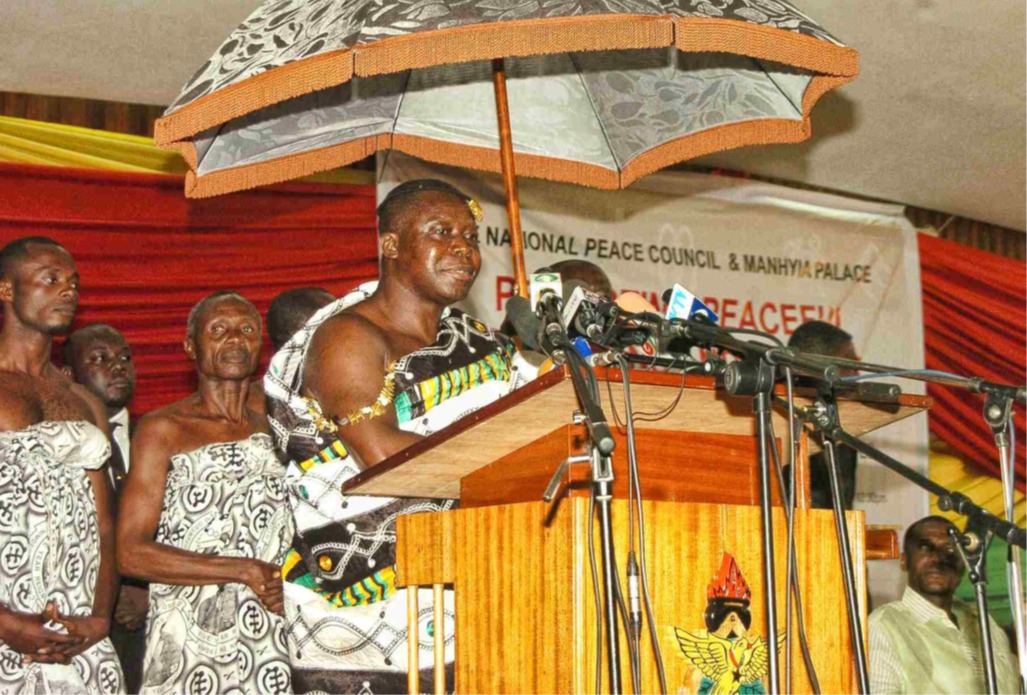
THE KUMASI DECLARATION
It has been said that elections in Africa provide the greatest security threats to the nations on the Continent. Ghana, however, has been widely celebrated for its peaceful yet competitive elections and transitions following elections.
What is less known is the anxiety, tension and fear of destabilizing partisan violence that often descends on the nation around Election Day and in the immediate aftermath of each general election, as the two rival parties —NDC and NPP—and their partisans trade suspicions and accusations of rigging and vote buying and implicate the Electoral Commission in allegations of partisan bias.
The eve of the 2012 Parliamentary and Presidential Elections were no exception. The NPP and the NDC accused each other of planning to rig the elections and cause mayhem. There was growing fear that neither party would concede defeat if the elections were declared in favor of the other party’s presidential candidate. Both parties issued inflammatory threats to that effect.
In response to this state of national anxiety and panic, Otumfuo Osei Tutu II, answering a request by the National Peace Council and civil society leaders, convened a meeting in Kumasi at KNUST of all Presidential Candidates ahead of the December 2012 Elections.
The various contesting political parties were represented as follows:
1. His Excellency John Dramani Mahama, the incumbent President and Presidential Candidate of the National Democratic Congress (NDC);
2. Nana Addo Dankwa Akufo-Addo – New Patriotic Party (NPP);
3. Papa Kwesi Nduom – Progressive Peoples Party (PPP)
4. Herbert Henry Lartey – Great Consolidated Peoples Party (GCPP)
5. Akwasi Addai – United Freedom Party (UFP)
6. Nana Frimpomaa Sarpong Kumankuma – Convention Peoples Party (CPP)
7. Mahama Ayariga – People’s National Convention (PNC)
8. Jacob Osei Yeboah – Independent Presidential Candidate
In attendance were the country’s two retired presidents, John Agyekum Kufuor and Jerry John Rawlings.
Also present were the following:
1. Her Ladyship Georgina Theodora Wood
Chief Justice of the Republic of Ghana
2. Most Rev. Prof. Emmanuel Asante
Chairman of the National Peace Council
3. Naa Prof. John S. Nabila
President of the National House
of Chiefs
4. Mr. Paul Tawiah Quaye
The Inspector General of Police (IGP)
5. Lt. General Peter A. Blay
The Chief of Defense Staff (CDS)
6. Christian Religious Bodies
7. The Muslim Community Leaders
At the conclusion of the meeting, which took place just ten days to the general elections, all eight Presidential Candidates committed themselves to peaceful elections and signed onto a document, dubbed “The Kumasi Declaration: Taking a Stand Against Electoral Violence, Impunity and Injustice in Ghana”.
Otumfuo Osei Tutu II, the convener, was one of the four personalities who witnessed the Kumasi Declaration. The ensuing elections came off without the widely feared partisan disruption or violence.
Incumbent President Mahama, who was contesting to win his first full term as president, was declared winner of the presidential elections, with his party, the NDC, retaining control of Parliament.
Although the NPP disputed the results of the presidential ballot as declared by the EC, alleging widespread election malpractice and irregularities, its presidential candidate Nana Addo Dankwa Akufo-Addo chose the path of litigation before the Supreme Court and urged the party’s supporters to shun street protests.
In the end, when after eight months of litigation, the Supreme Court upheld the declared results, the NPP’s Nana Akufo-Addo accepted the outcome, leaving President Mahama to continue with the business of government.
